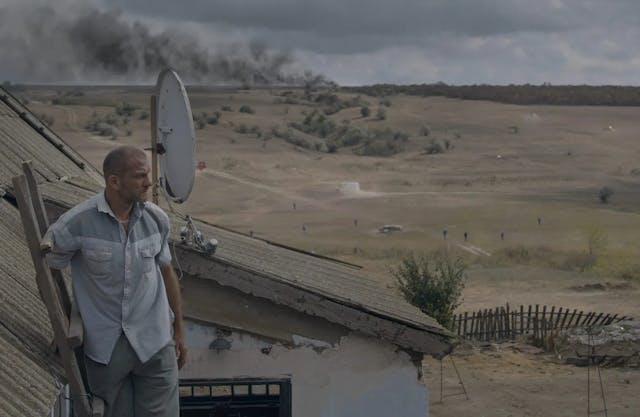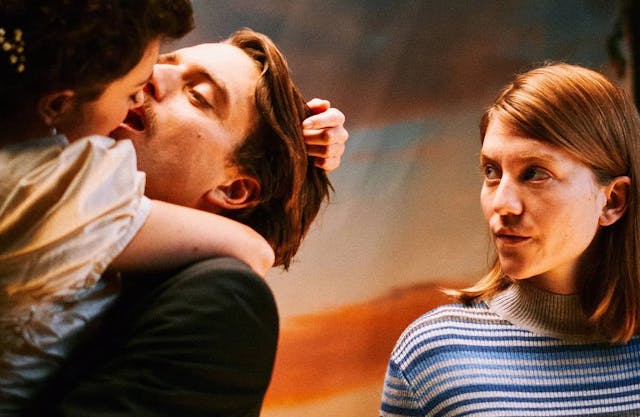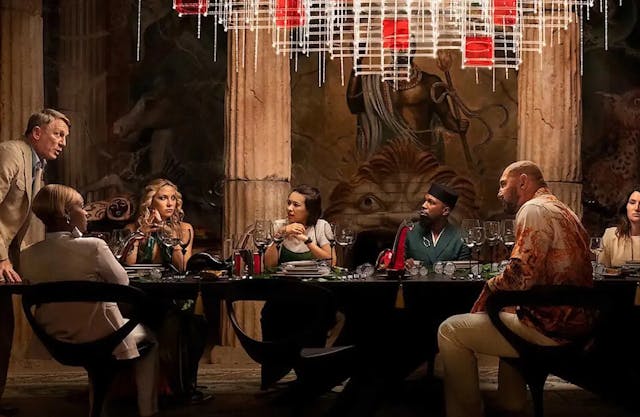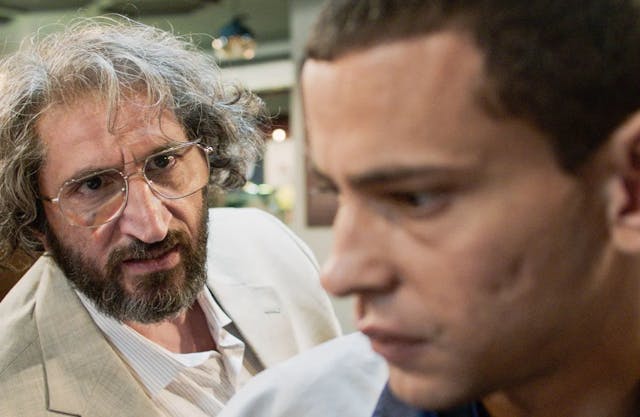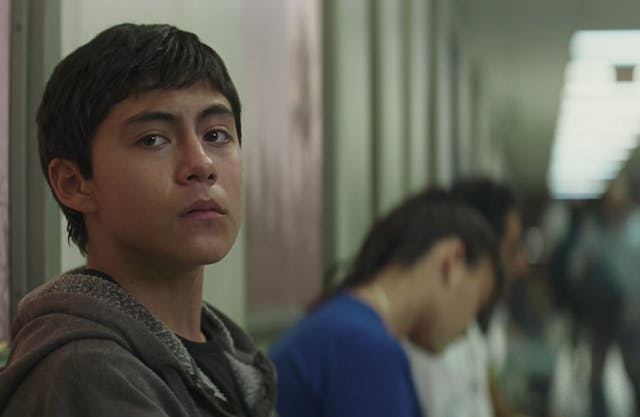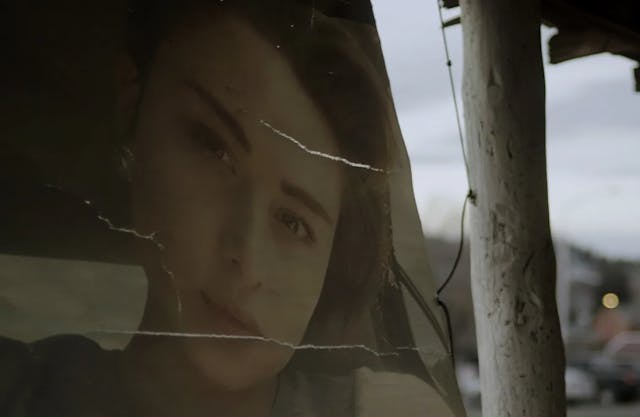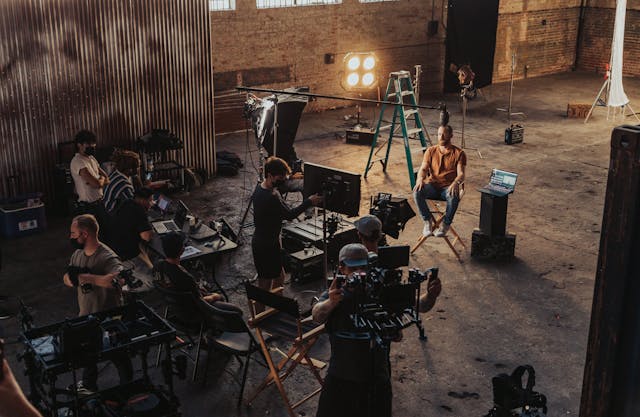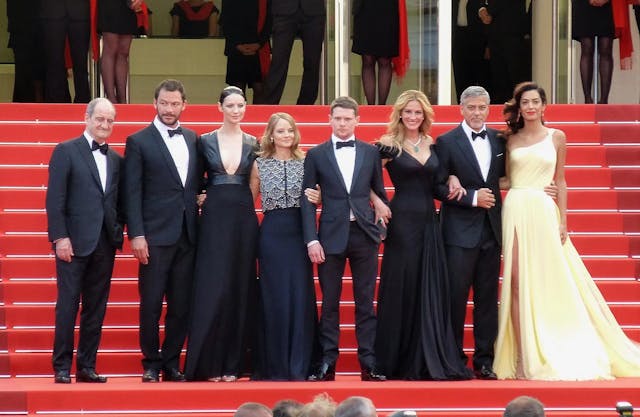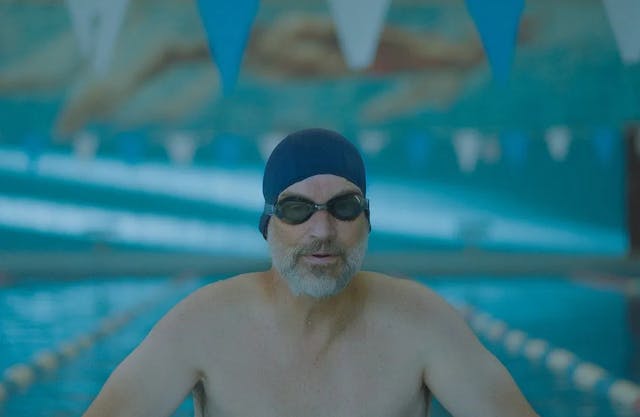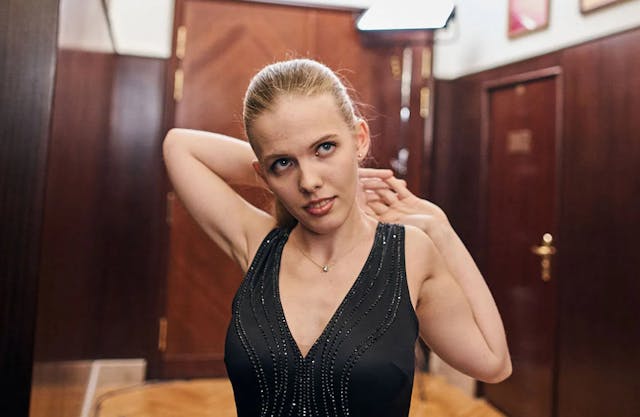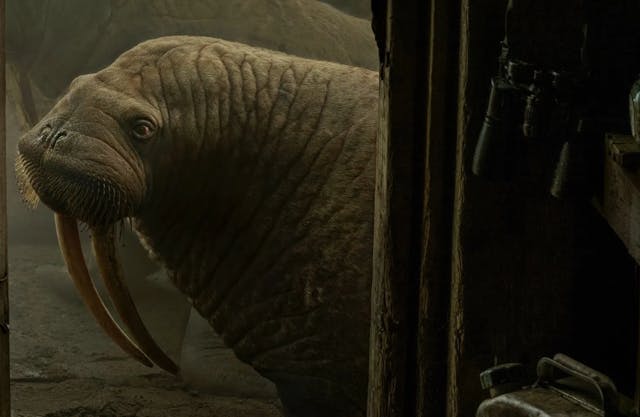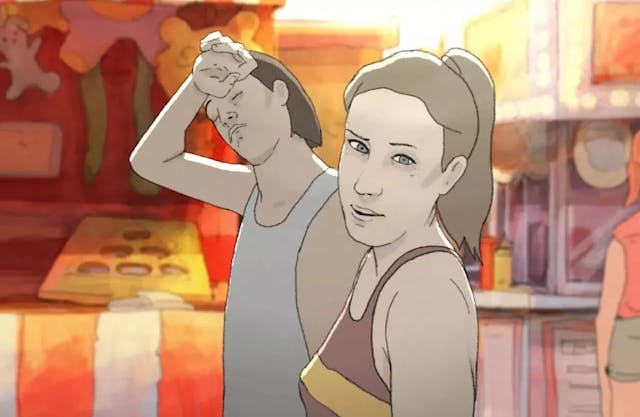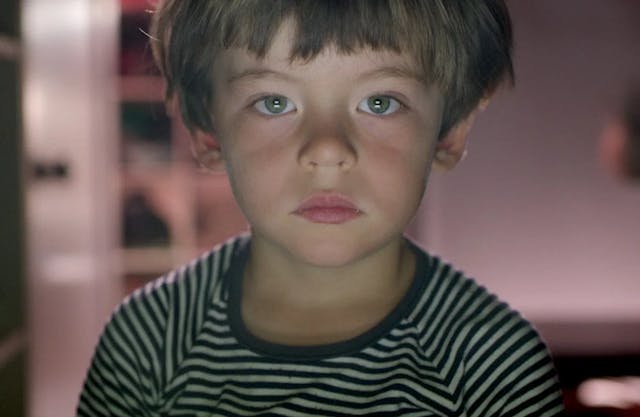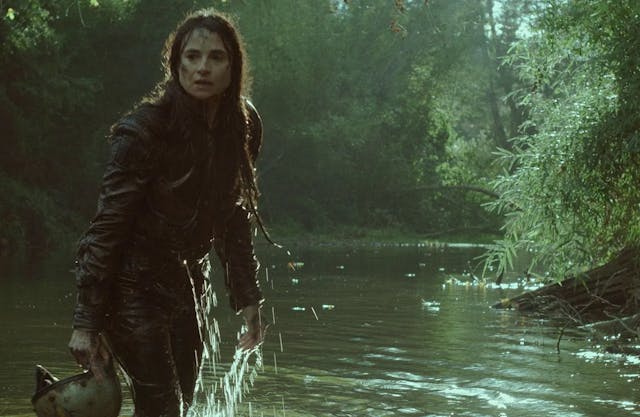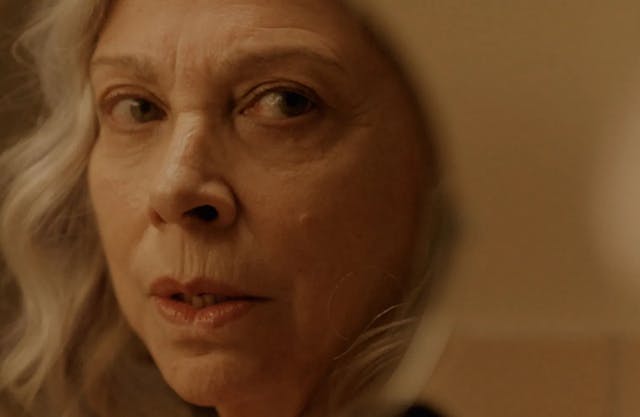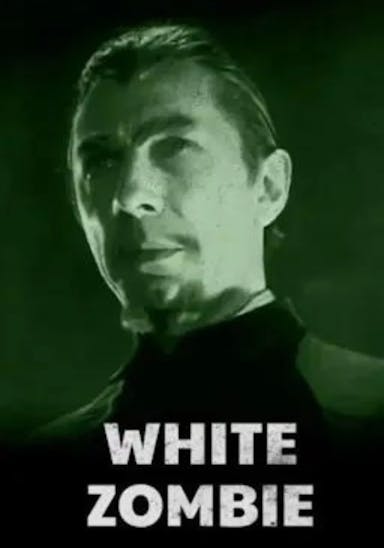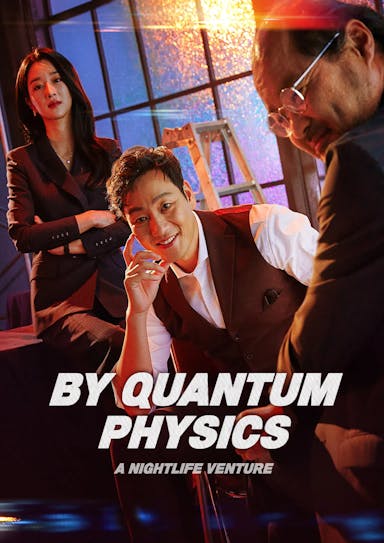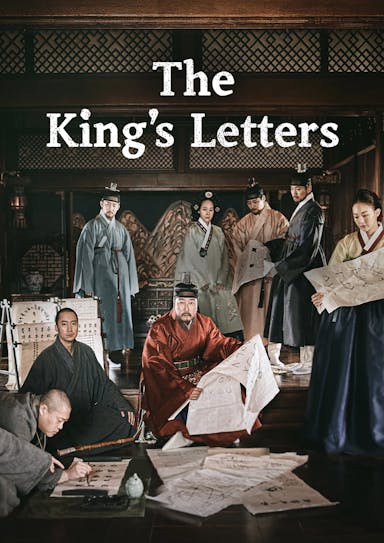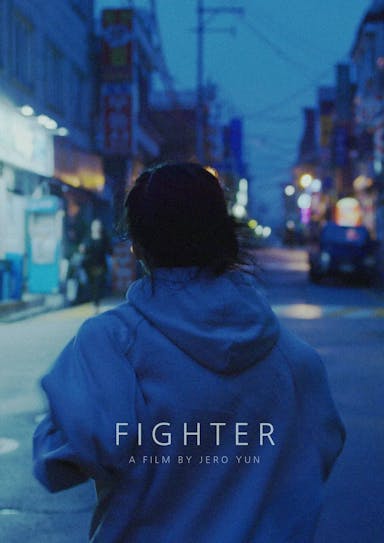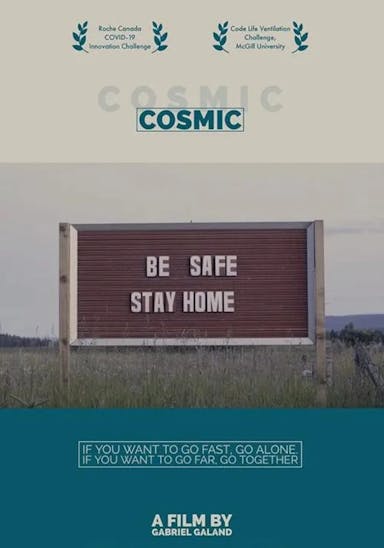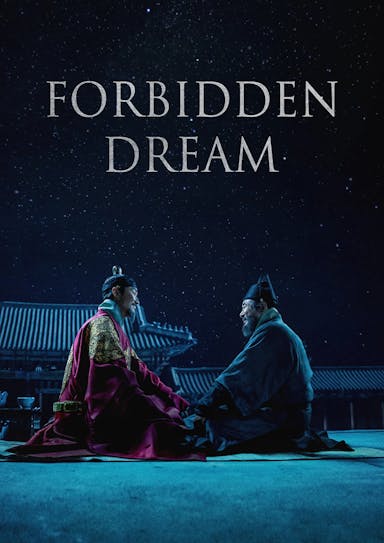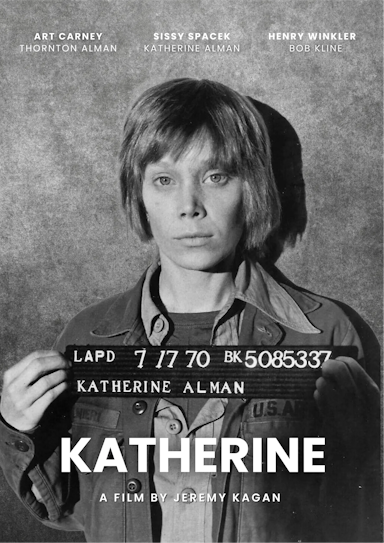"The Happiest Man in the World" Brings Ghosts of War to the Art House
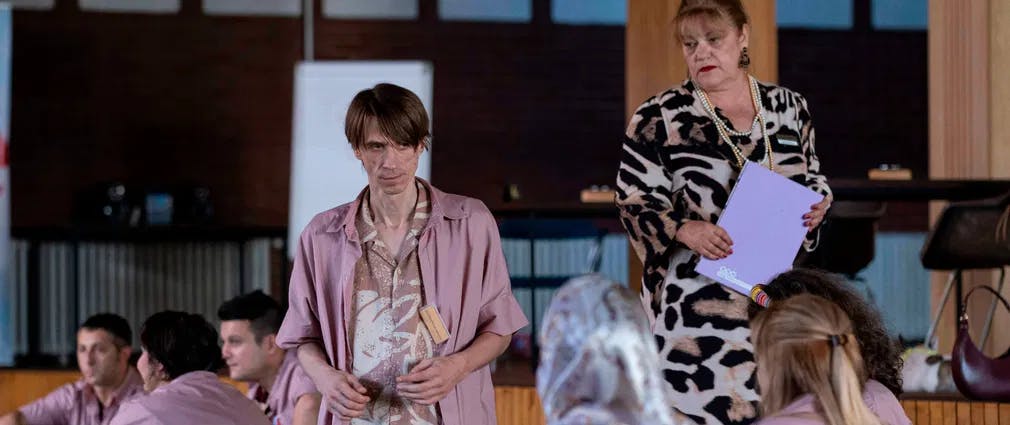
Omerovic might not look the part, be he is "The Happiest Man in the World" / Photo courtesy of Pyramide International and the Miami Film Festival
Teona Strugar Mitevska does not lose time undermining the title of her latest movie, The Happiest Man in the World. The 2018 Best Director Award winner at the Alexandria International Film Festival makes a new movie that ups her standing in the European film industry.
The Macedonian filmmaker opens up with a vertical take showing the back of his head as he stands on the ledge of a building. The tunnel vision of a suicidal man is conveyed by a screen ratio commonly associated with cellphone video, which adds a sense of ominousness to the moment. It could become one of those gruesome social media videos curators rush to delete from cyberspace. Then, something happens. The shot opens into a wide frame when he sees a woman below. This serendipitous appearance gives him a reason to step off the abyss and brings a dash of whimsy to a dark comedy about the impossibility of getting over the trauma.
For a long time, we have not seen the faces of the characters. This stealth tactic conveys them as an everyman and an everywoman whose story could have happened to anyone. The camera follows her as she walks through the city and enters a convention center in Sarajevo, one of those generic buildings that could be anywhere in the world. We finally see Asja's face (Jelena Kordic Kuret) as she signs in for the event: it is a dating convention for single people.
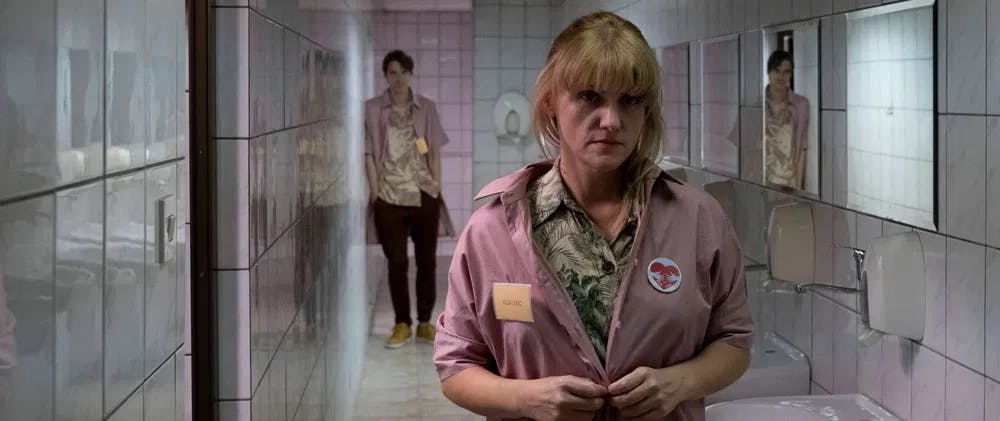
Kordic Kuret takes shelter in the bathroom in "The Happiest Man in the World" / Photo courtesy of Pyramide International and Miami Film Festival
The aggressively chirpy hostesses are Martha (Labina Mitevska) and Messiah (Ana Kostovska), shepherding an eclectic group of lonely hearts through a series of silly exercises, the first one of which brings Asja face-to-face with Zoran (Adnan Omerovic), a 42-year-old banker with a haunted, emaciated look. He is the repentant suicide from the first scene, and his encounter with Asja is not by chance. He manipulated the dating system to meet her again. In the early nineties, during the Bosnian war, he shot at her, and now he wants forgiveness.
Tension rises as the ghosts of war enter the civilized, sterile environment. Koric Kuret gives an amazing performance as a woman reckoning with the violence that marked her past - and her body - just as she tenuously tries to hold on to the banal normalcy of the present. Her fellow lonely hearts form a cross-section of society. As Zoran’s backstory comes into the open, their reactions show myriad attitudes towards the war: the oldest, who went through the hellish genocide, reacts with hostility towards the former enemy. Others want to move and pretend nothing happened. The youngest ones - a couple who also happened to be the better-looking of the lot - dismiss the whole affair with frivolousness that can only come from ignorance.
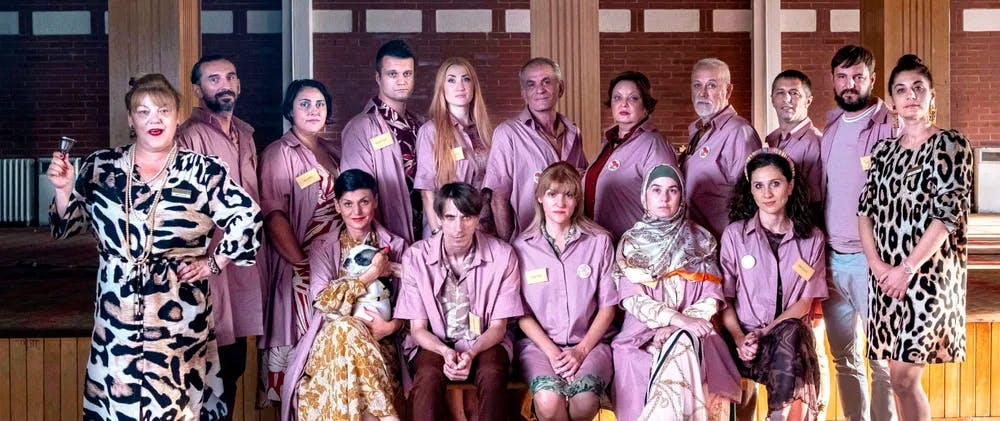
Lonely hearts united in "The Happiest Man in the World" / Photo courtesy of Pyramide International and Miami Film Festival
The large cast of supporting players offers a wide-ranging catalog of humane, genial caricatures: a mild-mannered widow who reveals herself as a serial dater; a smarmy, self-satisfied intellectual; and a mature gentleman ready to call Zoran to the task - “You shot against your city,” he says during a tense confrontation. All the characters are so vivid you could easily follow them into a movie of their own.
Alas, this is Adja’s story. She embodies the difficulty of forgiving those who harm us and the impossibility of moving on. Faith offers no respite. When she runs away from Zoran, she takes refuge in a bathroom decorated with a mirror shaped like a cross. It is cold and can only give you back your image. She is on her own when it comes to confronting her repentant executors.
The film's heart is a mock trial Adja stages as she takes over the romantic event. Strugar Mitevska deploys humor to underline the absurdity of denial, the absurd urgency to hold on to normalcy in the face of brutality. As Adja tears away a curtain to tie down Zoran, Martha screams, "All damages to hotel property must be paid for!". The scene culminates in a hallucination that takes the policy of an-eye-for-an-eye to its logical, tragic conclusion. But then again, what are you going to do? At least you can feel your rage.
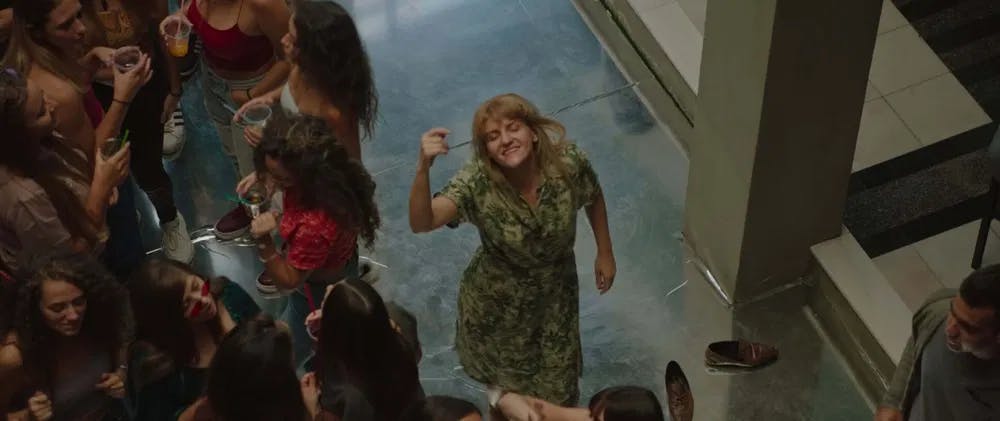
Kordic Kuret finds her place among dancing teens in "The Happiest Man in the World" / Photo courtesy of Pyramide International and the Miami Film Festival
Koric Kuret shows the piercing loneliness of carrying this load as time passes and a new generation, incapable of grasping what you went through, comes along. Besides a couple of attractive lonely hearts, we get a seemingly throwaway scene that illuminates the deeper conflict Adja carries within her. At one point, she stumbles into a party on the other side of the convention center, where a large group of kids is dancing with abandon in a well-lighted, modern space. It contrasts with the mannered, forced intimacy of the sad dating game in stuffy, dimly lit salons. The music and the ambiance possess her, and she starts dancing joyfully among the kids. A bouncer approaches to break the enchantment: this party is only for 18-year-olds, and she should leave. For a few minutes, the 40-something woman felt like the teenage girl she stopped being when Zoran shot her.
There is a similar scene at the end of "Summer Hours" (Olivier Assayas, 2008). Matriarch Hélene (Edith Scobb) has died. Her sons and daughter split, sold, or donated the artifacts that made her country house a home. Before selling it away, her grandkids take over the empty place for a weekend party. They dance, drink, smoke, and hook up, blissfully ignorant of the full scope of the family history dissipating in the air. Plastiscines' punky Loser blasting away - "Every time you call me, I don't respond / Every time you look at me, I don't see you / You're just a loser" -. It's a romantic taunt but speaks of the new generation's incapability to understand the past in this context. It is a kind of knowledge that only comes from experience.
Then again, "Summer Hours" is an elegy in times of peace among the privileged class. "The Happiest Man in the World" offers no respite in blissful forgetfulness. Forgiveness is nice, but it does not erase the pain nor give you back the life violence tainted or took away altogether. If there is any consolation, it is in the recognition that these terrible things happened to you. No trailer with English subtitles is available yet, but trust me, you will want to see this movie. Let's hope it breaks out of film festivals and into the Art House marquee. Make it a double feature with the Academy Award-nominated Quo Vadis, Aida? (Jasmila Zbanic, 2020). It's a crash course for the committed movie buff about the aftermath of brutal civil wars. The bullets may stop flying, but in a way, the war never ends.
Want to get an email when we publish new content?
Subscribe today